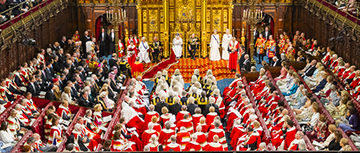Politicians who are bereft of ideas can always rely on criminal justice policy to fill their time. In 1994, John Major’s enervated, post-Thatcherite government penned the now infamous Criminal Justice and Public Order Act. The act is infamous for an odd reason given its contents. What made it so famous and derided that it targeted a particular form of ‘hooliganism’: electronic dance music. The law defined the offending music in raves as “wholly or predominantly characterised by the emission of a succession of repetitive beats.” This was a bizarre, funny, and apparently rather arbitrary pot-shot at a particular form of culture. But the Bill also contained other, much more consequential clauses. One of these enabled courts to infer guilt specifically from silence in police custody. This meant that the right to silence, the thing everyone is reminded of when they are arrested, was essentially discarded. It took an act of the European Court of Human Rights to repeal this. Other clauses included (for instance) the expansion of ‘stop and search’ powers, powers that are widely regarded as enabling systemic racism.
Why do I bring this up? Because the same political urge seems to be at play in the new Bill which will be debated this week in parliament. It is called the Police, Crime, Sentencing and Courts Bill. Like Major’s 1994 legislation, this new Bill is a mixture of many different policy ideas, rolled into one document. This is particularly useful for poorly drafted legislation, since populist clauses can provide cover for more controversial and flawed ideas. The populist clauses that face us today are a number of lines which increase the sentences for a number of serious crimes. Sentence length is very often appealed to in public discourse. They appeal to a sense of ‘natural’ proportionality. A certain number of years in prison is the ‘right’ number, and for the public that magic number is always greater than that given to those convicted of crimes. Longer sentences are also seen to be a deterrent against committing serious felonies. Although widely known to be untrue in practice, this idea seems to be remarkably tenacious in the public imagination. Increasing sentence lengths will always be popular, so politicians will keep doing it.
This is what Priti Patel has done. In addition, however, she has also loosened the protections of protest. We are living in dire times as far as the right to political demonstration is concerned. Large gatherings of people are illegal in general, and even if a given protest is unaffected by police, there is the sense that nothing should happen, because we all must ‘Stay Home’. Last night, police decided that a wholly peaceful, wholly laudable vigil after the murder of Sarah Everard and the still-grim situation of violence against women, should be responded to with violence. As many have noted, the irony of this was lost on the Metropolitan Police, who failed to admit responsibility.
I do not know why the state or its instruments are trusted to be respectful, sane and proportionate. Since John Stuart Mill, the state has always been understood by Liberals to be “the king of the vultures”. If we give more and more powers to the police—who are the talons and beak of that vulture—we will not be safer, but in greater danger. The state and its enforcers are to be treated as inherently evil, but tolerated as necessary. Last night, when a peaceful memory and statement of solidarity was broken up, we saw that evil portrayed vividly.
The Labour Party does not have any particular care for liberty. In 1994, when John Major’s law threatened to destroy the right to silence (and did), the Labour Party abstained. This allowed the law to pass. In 2021, they almost abstained as well, as early reports this morning implied. However, the events of the night past were too powerful and too unavoidable to hide behind the cowardice of populism. Eventually, therefore, they pledged to vote against the Bill. Most of the time, however, Labour act as enablers of Tory policy because they fail to understand liberty—or rather, fail to care about it. The Liberal Democrats, who are, surprisingly enough, Liberal, remain punished in perpetuity for a fiscal mistake of the mid-2010s.
Twitter is continually inflamed with the realisation that police do not always act in the public interest. These events never surprise any well-informed liberal. But those that speak loudest about these injustices are those that often decry liberal values as essentially bourgeois. This is a tragedy. The lazy over-empowerment of police to be overbearing on the most downtrodden people will continue in perpetuity, unless liberalism is taken as seriously as it deserves to be. At present, however, the leader of Her Majesty’s opposition is only capable of wringing his orthodox hands of cannabis.



0 Comments